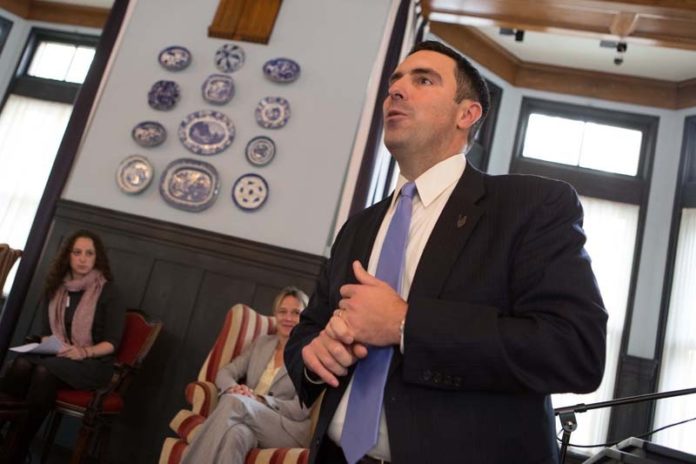
A shortage of fundraising professionals making “asks” for gifts today is posing a challenge for nonprofits, though some find alternative ways to build relationships that set the groundwork for seeking support.
In September AS220, an arts nonprofit in downtown Providence, hired a new development director from among nearly 50 applicants, most of whom were not truly qualified either as fundraising professionals or in terms of grasping the nonprofit’s core mission and culture, said founder Bert Crenca.
All full-time staff make the same salary – $38,480, which is part of that culture, he said. AS220’s new development director, Delia Rodriguez-Masjoan, works with a full-time staff member, Crenca said, and their job “is not just integral, but critical.”
“Everyone starts a nonprofit focused on a need, and then they end up focusing on raising money to do it,” he said. “We’re all out there competing for limited resources.”
Matt Netto, president of the Association of Fundraising Professionals, and Neil D. Steinberg, president and CEO of the Rhode Island Foundation, confirm what the Chronicle of Philanthropy in August identified as a nationwide scarcity of fundraising or development professionals in the nonprofit world.
Two reasons for the shortage include the lack of a clear-cut educational path for the profession and the proliferation of nonprofits nationally and locally, making the competition stiff for funds that can supplement earned income streams.
“A fundraiser needs to be willing to live their mission and be out in the community as an advocate at all times,” said Netto, whose organization has about 130 members. “They need to be confident in their mission and not be afraid to make ‘the ask’ – whether it is for help, money or any other assistance.”
Besides having oral, written and interpersonal communication skills, professional fundraisers must be “personable,” able to build relationships and knowledgeable about metrics for measuring success, since funders often want the impact of their investments quantified, Crenca said.
“It’s really important to be clear and get your ideas across and know what the organization has to provide as well as what the donor wants to accomplish,” said Eleanor Acton, development director for the Boys & Girls Club of Warwick.
The Rhode Island Foundation is both funder and recipient of gifts, Steinberg said, noting he has a staff of more than six in development.
“We’re working on the one side to help donors and be philanthropic advisers, while also telling them about needs in the community so they can direct their donations,” he said. The skills needed are the same whether an organization is asking for $1,000 or $1 million, he said: exceptional communication skills and a sense of mission.
“Fundraising is not just [about] asking,” he said. “It is [about] educating and inspiring people.”
Carolyn Belisle, Blue Cross & Blue Shield of Rhode Island’s managing director of community relations, said 60 percent of the agency’s investments are either in causes that address health care for the underinsured or uninsured or in childhood obesity. Annual grants, which include in-kind donations, total about $1 million, she said.
“Ultimately, we have a relationship with the organizations or someone is coming to me to say, ‘We’ve got this initiative and we’d love to tell you about it,’ ” she said.
The Rhode Island Free Clinic in Providence is one such organization with a development director, while another, Thundermist Health Center of Warwick, has a person in charge of development and grants, Belisle said.
“They have the skills to pitch [an ask],” she said, “[and] we have the comfort level to brainstorm new ideas. We are familiar enough with each other’s organizational goals to know how to complement each other.”
Nonprofits cannot always afford to hire development directors, though, said Netto. So, instead, some nonprofits prefer to rely on their executive directors or executive teams, or hire a consultant that can assist with a specific project need.
“I’m the primary fundraiser for the organization, but I do use a consultant,” said Ruth Taylor, executive director of the Newport Historical Society.
Twenty-five years ago, a capital campaign stalled and failed, says Taylor, so the nonprofit recently hired consultant Hannah Street to help with the latest campaign since there is a lot of competition for funding and many Newport residents with the resources to make major gifts only live locally part time.
Consultants “don’t raise the money for you,” she said. “They guide you as you raise the money.” •












